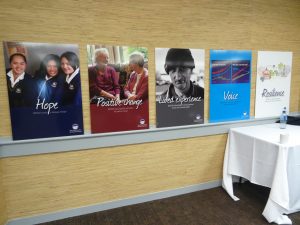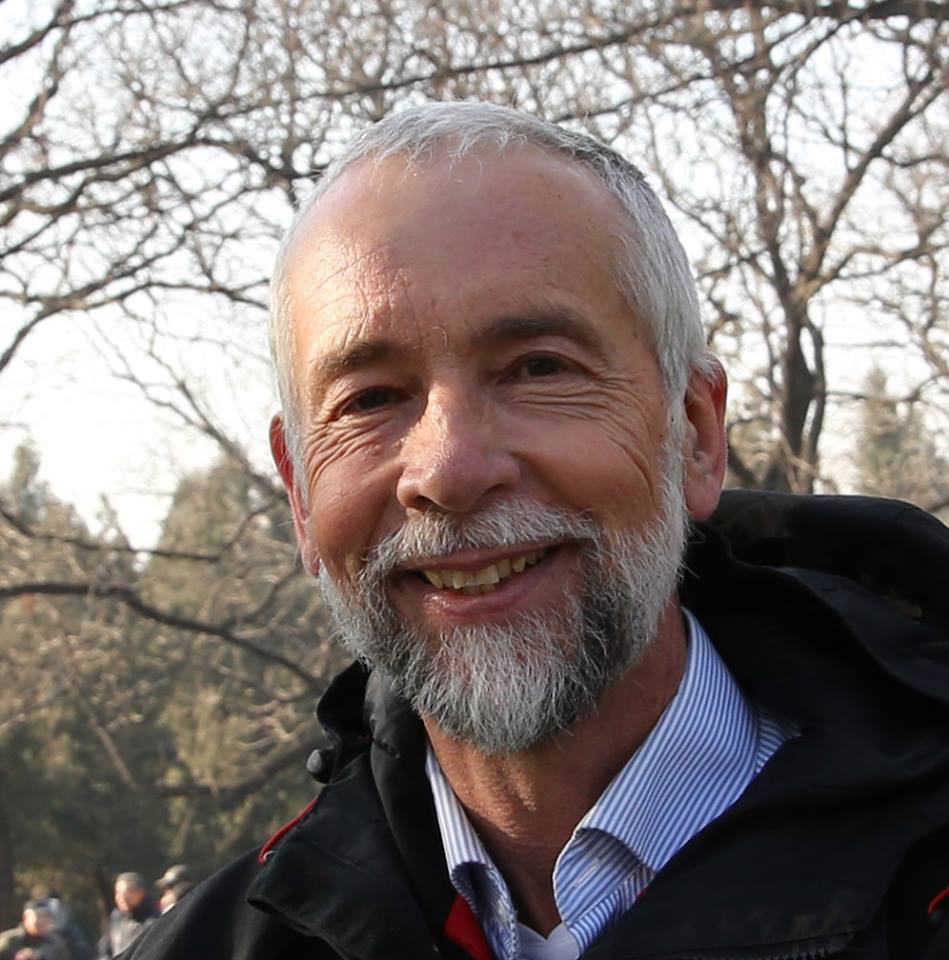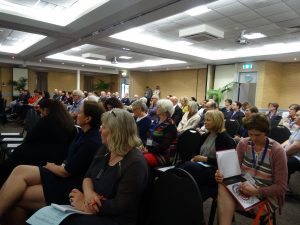Empowerment and Success Conference 2017 – A Brief Recap
 Change Happens! The conference took place only day after the confirmation of new Labour-led coalition government.
Change Happens! The conference took place only day after the confirmation of new Labour-led coalition government.
Keynote speakers and presenters made some last minute updates and government speakers found their messages cast in a new political light.
More than a hundred people from the community and social services sector come together for two days of genuine inspiration and new insights. Feedback from participants was overwhelming positive, with people telling us that the kaupapa of the hui was relevant to their work. People felt that speakers and presenters “knew their stuff” and valued the focus on the future. People really appreciated the interaction with others, comparing ideas and views; and the sense of values, spirit and mana shared.
Here’s what one participant told us:
| “it was inspiring, encouraging and nurturing to be amongst like-minded people and be reminded I am part of a wonderful, caring whanau of people doing great work in our communities. I was certainly also reminded of why I do what I do, and I expect that grounding to carry me forward especially in the times when I’m challenged, things get difficult, I question my ability to carry on and/or I just feel alone in my purpose and my work.” |
Another participant, LEAD’s Sandy Thompson wrote:
|
Spending time with people who are dedicated to addressing social injustice was such a privilege. Hearing a range of perspectives on issues such as poverty and homelessness was nothing short of inspirational. Only days before the conference we found out NZ had a new government; all speakers admirably kept their presentations relevant. I also learnt a heap about government perspectives and how Agencies are planning to address these issues. Insights that will be invaluable to me as I go about my work in the coming months.” A particular highlight would have to be NZ’s Chief Social Worker proposing the voting age be reduced to enable 8 year olds to participate in elections. Imagine, he said, how different government policy would look if those who were most affected by policy had opportunity to influence it in a meaningful way, as voting citizens. |
Some Highlights from Keynote Speakers
“The poisonous shopping cart”
Garth Nowland-Foreman, LEAD Not-for-Profit Management, took us on a tour of three decades of government/NGO relationships via a delightful set of metaphors “feeling the squeeze” “morning after” and “the poisonous shopping cart”. Changes to the way government is organised and managed began being introduced in the late 1980s based on market-based ideas of agency theory and public choice. Any initial enthusiasm for a refreshed approach to funding services soon turned into a ‘morning after’ effect as NGOs found themselves bound into restrictive contact-style funding arrangements. The effect of this has been to both squeeze funding and leave NGOs to simply another commodity in the social services supermarket.
Now is not the time to relax, he told the conference. The new government is an opportunity for structural change, but good intentions are not enough. NGOs will need to hold the parties in the new government to their specific manifesto commitments. He suggested building specific commitments into the performance criteria for departments to deliver on community goals.
He suggested linking funding to the organisational specific capital or added value that NGOs bring into the relationship with government and make the link also to the Superu work on measuring resilience of people and communities.
We need to understand who we are, organisations that have come together to make society a better place, not simply service providers.
“We are standing at a crossroads”
 Shelley Mallet, from the Brotherhood of St Laurence in Melbourne, began her address with the music of Australian indigenous poet Dr G. Yumupinghu. In the song “Wiyathul” he sings of his deep material and spiritual connection to the land of his kin, his mothers, fathers, brothers, sisters, human and animal.
Shelley Mallet, from the Brotherhood of St Laurence in Melbourne, began her address with the music of Australian indigenous poet Dr G. Yumupinghu. In the song “Wiyathul” he sings of his deep material and spiritual connection to the land of his kin, his mothers, fathers, brothers, sisters, human and animal.
She urged people and organisations to take inspiration from people such as Yumupinghu, find or rediscover a new language to shape the politics of welfare. We are at a crossroads as governments in Australia and New Zealand and around the world begin to acknowledge the limits of the “marketisation of human services” that had dominated thinking in recent decades.
She urged NGO to “lead with values, ideas and language”, to work to re-imagine and re-balance our work as “enabling organisations” shaped by a vision of justice built on the capability and possibilities of people rather than their deficits. It is about the provision of and access to opportunities and not just services. The wellbeing created needs to incorporate the set of opportunities, their distribution and sustainability as well as the level of risk and how it is allocated and the complexity of choices. The work needs to be resources through “fit for purpose commissioning” that seeks to ensure provider selection, implementation and model of co-ordination all serve policy goals.
BSL’s own work with a number of projects provides some case studies exploring what being an enabling organisation actually means in practice. It is focused on resourcing collaboration between providers and creating a community of practice clustered around a particular community’s need.
Is your organisation turning outward or inward?
 The aim of our organisations should be about meeting the aspirations of our communities, said Brian Smith, from the Harwood Institute for Public Innovation, in his keynote address. Yet so often we find ourselves chasing funding to provide programmes to clients.
The aim of our organisations should be about meeting the aspirations of our communities, said Brian Smith, from the Harwood Institute for Public Innovation, in his keynote address. Yet so often we find ourselves chasing funding to provide programmes to clients.
Our communities are complex and messy, made up of “micro-communities” and any consultation or engagement has to start with “listening deeply”. Over many years the Harwood Institutes has developed tools to help with this listening and engagement. One such tool is organisational analysis that aims to make the community rather than the boardroom the focus.
A simple questionnaire asks questions about whether your organisation’s mindset is turned outward or turned inward. Turned outward practice reinforces and strengthens the “turned outward muscle’ and builds a cumulative and ongoing process leading to deeper insight, more appropriate actions and sustainable impact within the community.
Are You Willing to Think Big with Sponsorship?
Australian corporate sponsorship consultant Julian Moore shared a few stories about his adventures in the world of corporate sponsorship and not-for-profit organisations. While it is an area not for the faint-hearted, he encouraged participants to look for opportunities and be prepared to take on a challenge. His own experience of taking on multi-million dollar sponsorship deals he emphasised that the main thing is to avoid mistakes that others have made (he shared a horror story or two) and make sure that any corporate partners they seek out really do match with values of your organisation.
“Never let a hungry relative guard your kinas”
 Trevor Moeke, New Zealand Treasury’s Principle Advisor Crown Māori Capability, took the conference on a witty and insightful journey across the Treasury Living Standards Framework as the basis for Treasury’s goal to support higher living standards for New Zealanders.
Trevor Moeke, New Zealand Treasury’s Principle Advisor Crown Māori Capability, took the conference on a witty and insightful journey across the Treasury Living Standards Framework as the basis for Treasury’s goal to support higher living standards for New Zealanders.
His “an eastern seaboard bootcamp economic view” brought some life into this vision. Drawing on his love for seafood delicacy kina, Trevor showed how the whakapapa of language expresses important values. The “kai” in leadership: kaiurungi steers the tiller, kaiarahi is the guide, kaikorerero leads the speaking, and the “kai” in the work: kaimahi is the worker and kaihapai does the heavy lifting.
He urged people to “navigate for collaborations” through the tectonics of winds, stars, clouds, birds and tides to build relationships because “shift happens”!
“Being powerless is a pre-condition to abuse”
Paul Nixon, Chief Social Worker for Oranga Tamariki, clearly acknowledged began by clearly acknowledging the social and economic drivers of inequality and the need for government social work to build off strong universal services in health and education that address these inequalities.
He pointed to the success of programmes such as Family Start that show the value of sustained and intensive engagement with families to help them turn around.
He shared some of the thinking guiding the new Ministry, with a focus on improving quality of service. This includes knowledge of others in the space, including NGOs; taking into account pasts of families and histories of interventions; and designing better decision tools to help social workers assess levels of need and risk. Hearing children’s voices properly in the process is essential and finding ways to do this better are a priority. Giving children a real voice in the decisions about their lives is about redressing the power balance because being powerless is a pre-condition to abuse.
Still learning what social investment is
Dorothy Adams, head of the government’s new Social Investment Agency, talked about the journey they have been on seeking to develop “evidence-informed investment practices” for the government’s social sector. She told the conference she wants their work to be “transparent by default” with as much as possible available to those who can use it.
It is not just about data, but about all the information available to government, she said. But at this stage they do not know much about what factors promote resilience, rather than risk factors. There is a general lack of such strengths-based information. If the effectiveness of social services is to be measured in the wellbeing of individuals and communities, then it is about how to use data to get there.
What is good data, she asked? It has value for all those involved and she made it very clear that they almost never need client-level data. She talked of NGOs trialling ways of using data – giving it back to families to use to map their own goals and progress or NGOs trialling collaborating in delivering services to similar clients.
All conference keynote and workshop presentations are online at http://empowerment.nz/presentations/

 “Without doubt participating in Empowerment & Success: A Positive Path for the NGO Sector was one of the highlights of my year…
“Without doubt participating in Empowerment & Success: A Positive Path for the NGO Sector was one of the highlights of my year…